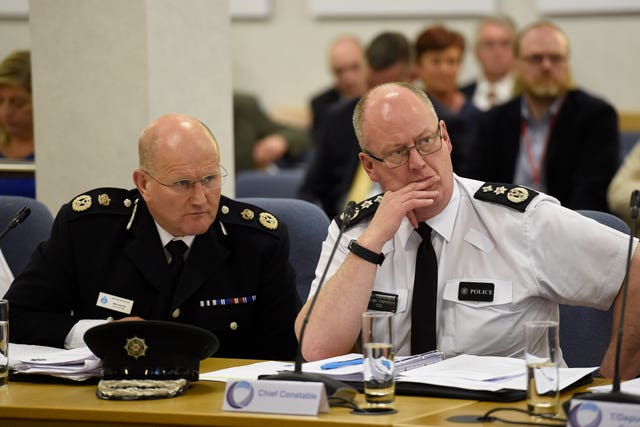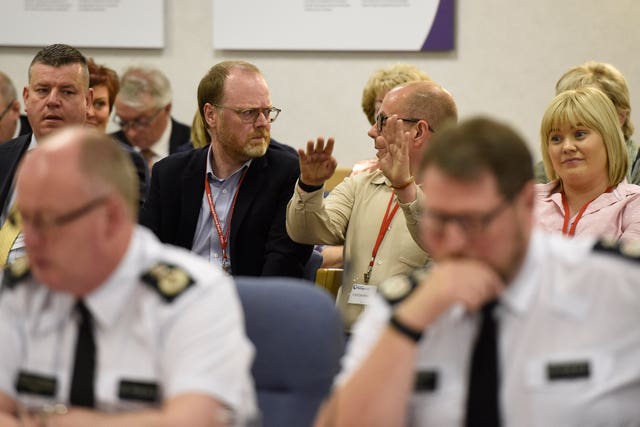
Northern Ireland’s police watchdog has stood by an assertion that it did not make a complaint of theft amid a row with two Chief Constables.
The dispute centres around a confidential document from the Police Ombudsman’s Office which seemed to be featured in a documentary.
The document appeared in No Stone Unturned, a film about the murder of six Catholic men shot dead by the loyalist Ulster Volunteer Force (UVF) in a 1994 attack on the Heights Bar in Loughinisland.

The Police Service of Northern Ireland (PSNI) asked Durham Constabulary to investigate the alleged theft.
The investigation led to the arrest of two award-winning journalists, Trevor Birney and Barry McCaffrey.
The probe against the two men was dropped last week after Northern Ireland’s Lord Chief Justice ruled search warrants against them were inappropriate.
However Police Ombudsman Dr Michael Maguire and the heads of the PSNI and Durham Constabulary remain at odds over whether a complaint was made.

Appearing at a meeting of the Northern Ireland Policing Board on Thursday, Durham Chief Constable Mike Barton and PSNI Chief Constable George Hamilton insisted they had received a letter of complaint from the Police Ombudsman’s Office.
Mr Barton held a document aloft during the meeting in Belfast and read a section of it.
Mr Hamilton insisted: “For an investigator or for a lawyer, I would say by any measure, it was a statement of complaint.
“I am struggling to understand why the Police Ombudsman would be reluctant to make a statement of complaint because this sensitive material wasn’t anything to do with embarrassing content, it was to do with the identities of people who if it became public knowledge their lives would be at risk in the real and immediate sense.
“I can’t understand why the Police Ombudsman would not want to put his name to that statement of complaint.”
On Friday a spokesman for the Police Ombudsman’s Office told the Press Association it stands by its position that it did not make a complaint of theft.
“In October 2017, on the day after we had a viewing of the documentary, we briefed PSNI that it had identified a number of individuals, who may now be at risk, and that it had shown extracts from what appeared to be a Police Ombudsman document, albeit in different format to our documents,” the spokesman said.
“We did not make a complaint of theft.
“We understand that PSNI commissioned Durham Police to investigate the means by which the film’s production team secured access to material, whether by theft or other unauthorised disclosure.
“We have co-operated fully with that investigation.”


Comments: Our rules
We want our comments to be a lively and valuable part of our community - a place where readers can debate and engage with the most important local issues. The ability to comment on our stories is a privilege, not a right, however, and that privilege may be withdrawn if it is abused or misused.
Please report any comments that break our rules.
Read the rules here